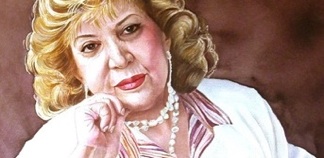به زبان فارسی
PICTORY
LATEST MUSIC
SEARCH
20-May-2009 (25 comments)
A page from my old diaries of war...written while hiding in the closet of my room during the blackouts. It was originally written as prose, but it became a poem while writing it in Behnevis!>>>
20-May-2009 (2 comments)
She will be managing the SCE twitter and Iranian.com blog and is working towards expanding SCE to facilitate a group of volunteers in Toronto. >>>
VOTE
20-May-2009 (175 comments)
A vote; an amazing right capable of extraordinary change. Where a vote used to stand as something worth fighting for, we now see the great degree to which some people have lost sight of this fact. This power and control is a privilege taken for granted. How long ago it now seems that the forefathers of the United States waged a revolutionary war to declare their freedom from Great Britain and give the choice of government back to the people. How long ago it now seems that women marched the streets in demand of the rights of suffrage. How long ago it now seems that people of all different colors banded together to achieve their rights as equal citizens in the selection of their government. But the truth is, that it was not so long ago>>>
20-May-2009 (35 comments)
همسر و فرزند اول؛
مریم سواد کوهی( صفیه یا تاجماه ) و اولین فرزند او فاطمه (که بعدها چون ندیمه و همدم نیم تاجالملوک) شد؛ لقب همدم السطنه گرفت!
AHMADINEJAD
20-May-2009 (13 comments)
The Durban Review Conference held in Geneva in April was set to examine progress made toward the goals of the previous conference in 2001: to eliminate racism, xenophobia and related intolerance. Many expected the conference would condemn Israel's attack on Gazan civilians, but what transpired was indeed the opposite. The resolution passed in Geneva helped Israel's stance by commemorating the Holocaust. Iran's President Mahmoud Ahmadinejad had a lot to do with this outcome, albeit inadvertently. The conference was filled with a sense of premonition even before it was convened. Ahmadinejad's presence had made participants uneasy>>>
EXCERPT
20-May-2009 (9 comments)
The 1979 Islamic revolution was not a wholesale return to the past; rather, the new state reinvented and expanded certain retrogressive cultural practices and presented them as what Foucault has called a “regime of truth” through modern technologies of power. As part of its commitment to modernity, the Islamist state continued the literacy and health campaigns of the Pahlavi era. It also created, alongside the army and the police force, a parallel series of paramilitary forces. As soon as the regime attained some degree of authority, it established a new juridical discourse on sexuality, whose underlying theme was granting more power over women’s sexuality and reproductive functions to the state and to men, while also reversing modern trends in love and marriage.>>>
RECENT COMMENTS
IRANIANS OF THE DAY
| Person | About | Day |
|---|---|---|
| نسرین ستوده: زندانی روز | Dec 04 | |
| Saeed Malekpour: Prisoner of the day | Lawyer says death sentence suspended | Dec 03 |
| Majid Tavakoli: Prisoner of the day | Iterview with mother | Dec 02 |
| احسان نراقی: جامعه شناس و نویسنده ۱۳۰۵-۱۳۹۱ | Dec 02 | |
| Nasrin Sotoudeh: Prisoner of the day | 46 days on hunger strike | Dec 01 |
| Nasrin Sotoudeh: Graffiti | In Barcelona | Nov 30 |
| گوهر عشقی: مادر ستار بهشتی | Nov 30 | |
| Abdollah Momeni: Prisoner of the day | Activist denied leave and family visits for 1.5 years | Nov 30 |
| محمد کلالی: یکی از حمله کنندگان به سفارت ایران در برلین | Nov 29 | |
| Habibollah Golparipour: Prisoner of the day | Kurdish Activist on Death Row | Nov 28 |














